Cultivating resilience in our food systems

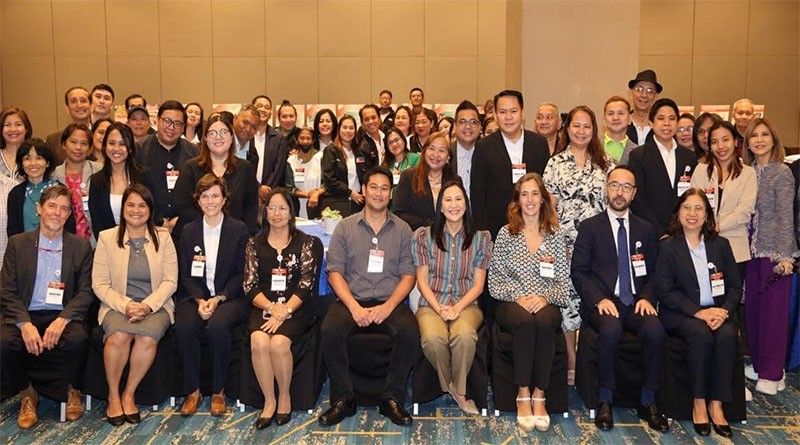
Our growing population needs innovations in our food system now more than ever. According to data from the United Nations Food and Agriculture Organization (FAO), around 51 million Filipinos experience moderate or severe food insecurity, placing the country among the highest rates in Southeast Asia. That’s nearly half of our population, who face real risks of undernourishment and hunger.
The Urban Food Systems Policy Forum held last Thursday in Quezon City brought together leaders, experts, and advocates to discuss these issues head-on. As the moderator of this forum, I had the chance to see up close an insightful and inspiring dialogue that underscored the importance of multi-sectoral partnerships, innovative policies and out-of-the box solutions to secure a better future for our urban food systems.
The forum provided a space for government officials, private sector leaders, researchers and local advocates to explore actionable solutions and policy ideas to combat this crisis.
Urban food systems are at the heart of this challenge. Our cities consume the bulk of the food produced in the country, yet urban food policies are often overlooked as priorities in local governance. The Urban Food Systems Policy Forum, made possible through the collaboration of the QC LGU and CGIAR’s Resilient Cities Initiative, aimed to address this gap by focusing on pathways to create a sustainable, inclusive and resilient food system.
"Through research, we aim to provide the evidence to guide actions by government and to guide food system actors in creating healthier, wealthier and greener urban food systems," CGIAR Resilient Cities Co-lead Silvia Alonso said in her welcome message.
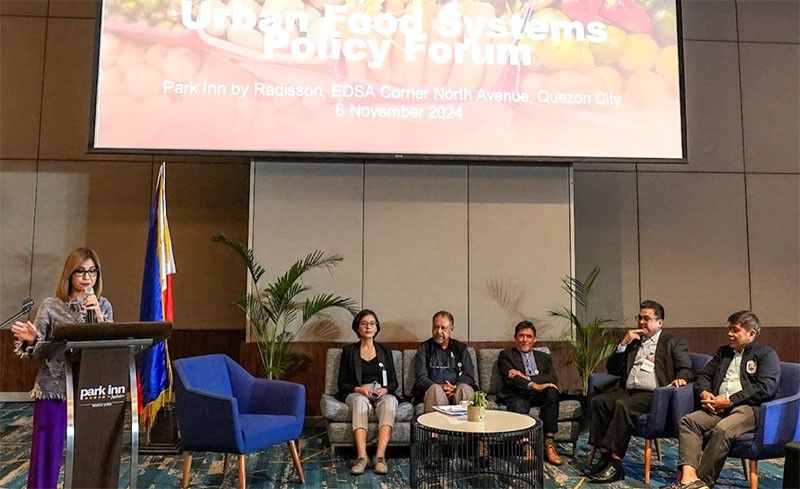
The important role food vendors play
By offering insights and examples from current projects, including the Vendor Business School and various community gardening initiatives, the forum highlighted the untapped potential within our urban food ecosystems.
The Vendor Business School is an innovative project that serves as a vital component in strengthening local food systems. Through a pilot program launched in 2024, QC food vendors received training to improve their business practices and food safety knowledge. These efforts aim to equip vendors – who are often women and serve as primary providers for their families – with the skills and resources they need to sustain their businesses.
It’s important that we recognize the role of these vendors as critical players in the food supply chain and highlight the importance of focusing on the “last mile” of food distribution, ensuring food safety, quality, and accessibility.
Local wet markets, which provide the produce for many Filipino households, play a much bigger role in food systems than you might think! From small karinderyas to our suki market stalls, they are an essential part of urban life and serve as hubs for accessible food.
However, food vendors frequently operate on the fringes of formal policy, often facing financial constraints and, at times, harassment. Ensuring that local governments value and protect these vendors is fundamental for a resilient food system.
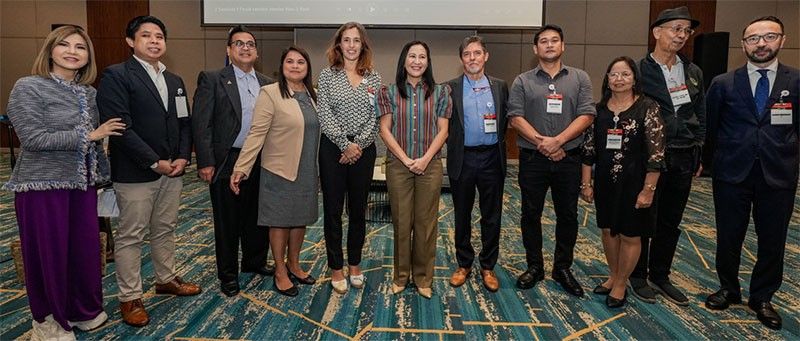
A fresh approach on food systems needed
Mayor Joy Belmonte, a vocal advocate for food security, emphasized the need for innovation and a departure from outdated approaches to food policy.
"We must unlearn old practices that reflect linear and one-dimensional approaches to food security and nutrition, especially in how we finance these programs alongside with other key dimensions such as climate change and social services,” Belmonte said.
This is in line with what Resilient Cities Senior Advisor Dr. Gordon Prain shared, that evidence-based decision making for our food systems must be an inter-sectoral approach. Dr. Prain pointed out that “it has to be a collaborative effort involving researchers, the public sector, the food security task force, and the private sector."
QC’s own Joy of Urban Farming (JOUF) program, which began in 2010, can be a case study in what is possible when local governments embrace such complexity. Through the JOUF, over 1,300 urban gardens and 25,000 urban farmers have been trained to cultivate climate-resilient crops. This effort has introduced crops like talinum, gabi, and malunggay – local nutritious plants known for their resilience to extreme weather conditions.
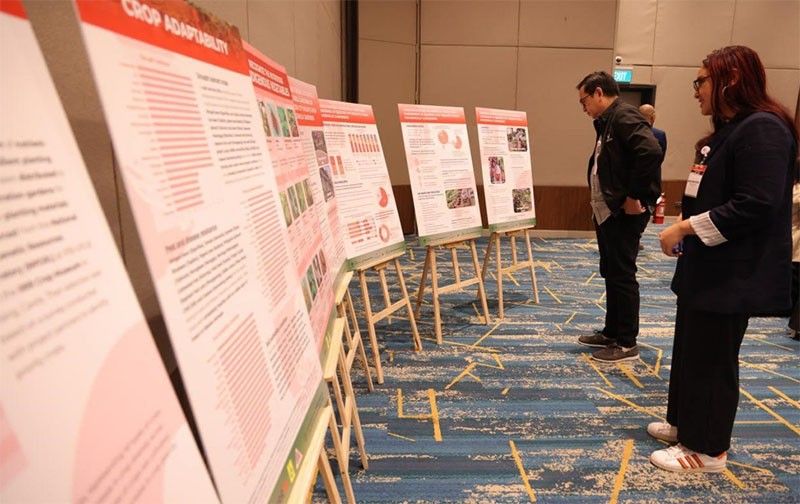
International Institute of Rural Reconstruction (IIRR) Advisor Dr. Julian Gonsalves, emphasized the need for more sustained efforts like the JOUF.
"Urban agriculture is notorious in the fact that some efforts have not been sustained. We need to measure success by using sustainability as a yardstick to determine if that was a success. If you don’t have a 3-year time frame, don’t stop," said Dr. Gonsalvez.
Dr. Herminigilda Gabertan, an assistant director at the the Department of Agriculture (DA)-Bureau of Plant Industry and National Urban and Peri Urban Agriculture Program, shared the department’s ongoing initiatives to establish more community gardens. “We partnered with the different cities, the urban and the peri-urban for the Halina’t Magtanim ng Prutas at Gulay sa Barangay -- the HAPAG program -- which aims to have a community garden in every barangay. We partnered with our corporate and the private partners, we put up a techno-demo or showcase, even in the malls and other strategic areas.”
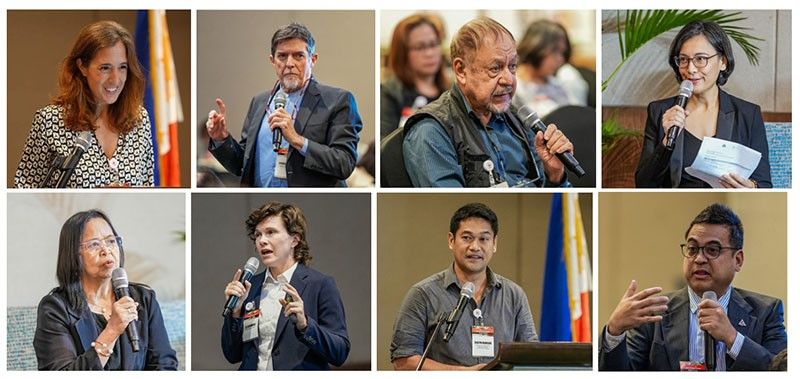
Join the call for collaboration
My husband, Nonong Velasco, also the Co-chairperson of QC’s Food Security Task Force, voiced out the LGU’s optimism that the “proactive and collaborative, research-based approaches that Quezon City and CGIAR have shared could become a model for others to follow.”
“This partnership shows the power of data-driven policies in transforming food security, and I believe it can inspire cities worldwide to build sustainable, food-secure futures for their communities," he added.
LGUs are a critical link in the “food system transformation and climate action because 68% of the world’s population will reside in cities by 2050,” Mae Valdez-Irong of the ICLEI Southeast Asia Secretariat emphasized. “Cities define societies’ consumption and production patterns.”
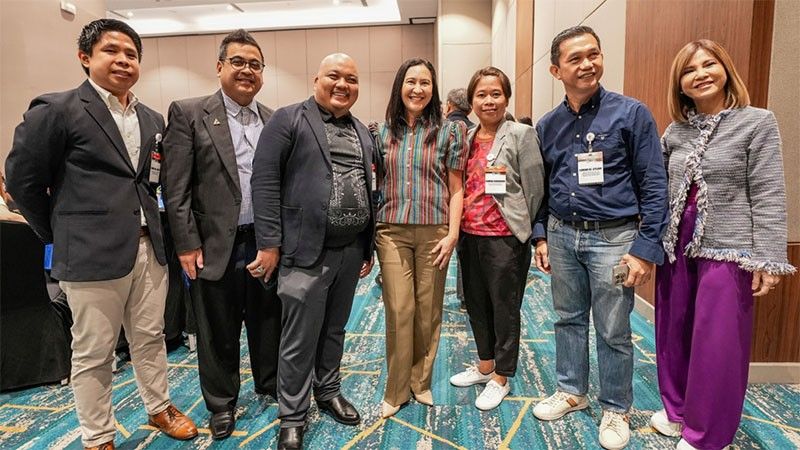
Moderating this forum renewed my optimism in the power of collaboration. This meeting of minds – government officials, researchers and experts, local leaders, and passionate advocates – is exactly what we need to push for meaningful, lasting change in our food systems.
The collaboration between QC and CGIAR is a promising start. It serves as a testament to what can be achieved when a city dedicates itself to the ambitious goal of food security for all. This forum marks an important step forward, a step that I hope will spark even greater efforts to secure sustainable and inclusive food systems, not only in QC but across the nation.
After all, we all share a responsibility to ensure that every Filipino has access to nutritious, affordable food. With a clear vision, committed leadership, and sustained collaboration across sectors, we can indeed cultivate a food-secure, resilient future for all.
------
Follow my social media accounts JingCastaneda: Instagram, Facebook, YouTube, Tiktok and Twitter. Please share your stories or suggest topics at editorial@jingcastaneda.ph



















